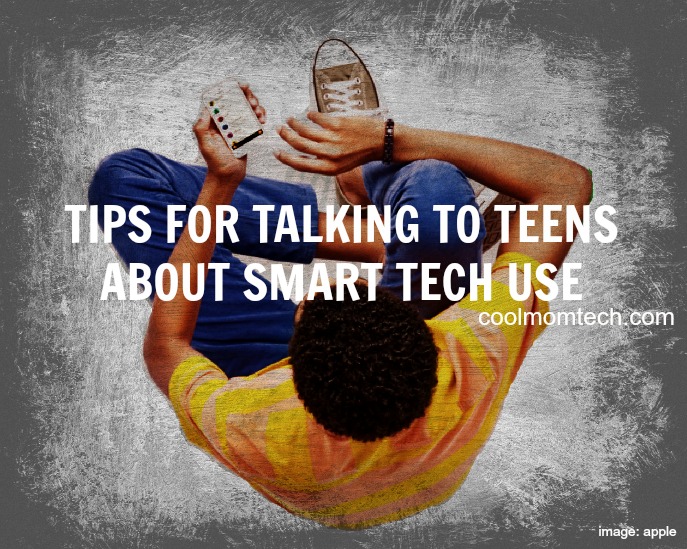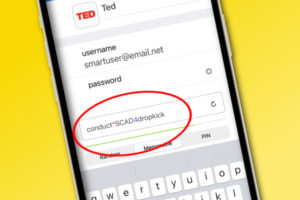Just about every day, I have a moment where I’m grateful social media wasn’t around when I was a teen or pre-teen. Don’t get me wrong; technology is a major positive in my life and in my kids’ lives. But it’s also kind of scary to think about the ways in which it can be misused.
I’ve learned a lot parenting a tech-using tween, and I’m still learning every day. Here are 6 of the best recommendations I’ve learned for helping your kids to be as smart and safe as possible when they use tech.
1. Start talking early. Then don’t stop.
We’ve always advocated for talking to your kids early and often about internet safety, the same way we talk about strangers or nutritional choices. Tech is a huge part of their lives and it’s never too early to start opening dialogue about safe choices.
2. Know what you’re talking about
You don’t have to be a tech expert yourself, but before handing over a gadget, understand it first. Open it, read the manual, enable restrictions and make it safe. We also suggest you use the gadget yourself for a while before wrapping it back up and presenting it to the proud new owner. Hint: do all of this first, because you won’t likely get it back for a while.
3. Become an app expert
While it’s impossible to get to know every single new app, at least try and stay up to date on the top social apps and what experts are saying about them. Cool Mom Tech is one great source of info, of course, but it’s easy just to listen to your kids too. Pay attention to the apps they’re downloading (or that they’re asking you to download for them), ask them about the apps their friends are using, and check them out on your own.
Better yet, find out about popular new apps first and let your kids know which ones you’ll greenlight and which ones you won’t. I told my tween that Kik and Snapchat were no-no’s even before she learned about them, and she was impressed when I told her not to post any videos on Instagram or Vine: “How do you know about Vine, Mom?” Staying one step ahead of tweens is a great precaution all on its own.
4. Use restrictions, but don’t rely on them exclusively.
Gadgets and apps and software come with restrictions that can help parents keep kids safe and supervised. We’ve got comprehensive tips on making tablets safe for kids, and making an iPod Touch safe for kids that you might find helpful–I’ve recommended to tons of fellow parents.
It’s also wise to check age restrictions for an app or a website (hello, 13 for Facebook!) before giving a tween permission to create an account–but you know your kid best, and how responsible he or she will be.
Kids can get sneaky though, especially if they think we aren’t paying attention. I told my daughter not to create an ask.fm account (and not just because the site requires users to be 13 or older), but when I was perusing her Instagram feed, I discovered that she had anyway. Fortunately it was only a couple days old, and she hadn’t shared any personal information, but it was a good reminder that keeping up with tween tech use requires vigilance.
As kids grow older, it makes sense to continually revisit guidelines and determine what might be appropriate now that wasn’t okay when they were younger.
5. Browse together.
My oldest daughter and I love to sit and scroll through her Instagram feed, because her own social circles offer the best teaching examples. I point out where kids aren’t being safe, such as bikini shots (eek) or unlocked, public accounts. (I know; I wish I were making this up.) She points out drama that’s unfolding in her social circles, and we talk about what’s appropriate to reveal online and what’s better suited for a private discussion.
PR pro and tween mom Elissa Freeman uses the toothpaste analogy to describe the nature of social media sharing: Once you squeeze the toothpaste out, it’s not going back in the tube. Or as we always say, the Internet is forever. Once you post online, there’s no taking back those words, that photo, or that video. With one word–toothpaste!–Freeman reminds her daughter to think twice before posting. Such a brief and brilliant way to keep kids vigilant too.
6. Banning social media doesn’t work
While it may seem tempting to forbid kids to use social media at all, it’s inevitable that they will be exposed to it, even if they don’t have their own accounts–that you know of. That’s why you have to talk about it and set rules, probably earlier than you think you do. And if we can get ahead of our kids’ learning curves to some degree, we can make informed decisions for ourselves and for them. We’re all in this together, mamas. –Julie
Find more ideas and resources for keeping kids safe online in our Internet Safety category.







Trackbacks/Pingbacks